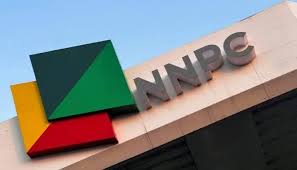The Nigerian National Petroleum Company Limited (NNPC Limited) has reported a total revenue of N4.571 trillion for the month of June 2025, maintaining its upward revenue trajectory amid steady increases in crude oil and gas production. The figures were revealed in the company’s latest Monthly Report Summary released on Monday in Abuja.
According to the report, Nigeria’s crude oil and condensate production reached 1.68 million barrels per day (mbpd) in June, marking the highest output since January 2025. This represented a significant rise from the 1.63mbpd recorded in May and 1.61mbpd in April. The June production figure comprised 1.42mbpd of crude oil and 0.26mbpd of condensates.
NNPC also reported a robust performance in the gas sector. Natural gas production increased to 7.581 billion standard cubic feet per day (scf/d) in June, up from 7.352bn scf/d in May and 6.615bn scf/d recorded in February 2025. This sustained growth underscores the recovery and strengthening of Nigeria’s gas production capacity.
The company further announced a profit after tax of N905 billion for June 2025. Additionally, NNPC stated that it had remitted a cumulative statutory payment of N6.961 trillion to the Federation between January and May 2025. This reinforces NNPC’s position as a crucial revenue generator for the country, especially at a time when Nigeria’s dependence on oil revenues remains significant.
Despite the rise in production, crude oil and condensate sales in June slightly declined to 21.68 million barrels, compared to 24.77 million barrels in May. February 2025 still holds the record for the highest sales volume so far this year with 25.31 million barrels sold.
In the gas segment, daily gas sales in June climbed to 4.742bn scf/d, compared to 4.698bn scf/d in May and 3.545bn scf/d in February. The continued increase in gas sales is attributed to improved infrastructure and the progress of strategic projects such as the Ajaokuta-Kaduna-Kano (AKK) gas pipeline, which is now 83 per cent complete.
The NNPC noted a major milestone with the completion of the River Niger crossing on the AKK pipeline, describing it as one of the most challenging segments of the project. This completion, according to the company, has de-risked the remaining construction phases and is expected to boost gas transportation across Nigeria.
The company’s report also revealed that pipeline availability across the upstream network stood at 97 per cent in June, indicating reduced incidents of vandalism and sabotage. This is a positive development for the sector, which has historically grappled with disruptions due to pipeline breaches.
However, the report pointed out that petrol availability across NNPC Retail Limited stations remained at 71 per cent, highlighting persistent distribution challenges, especially in some parts of the country. Nevertheless, the company’s internal performance maps showed improved fuel availability, or “wetness,” particularly in the North Central, South-South, and North West regions.
On the infrastructure front, the NNPC stated that the OB3 gas pipeline project is 96 per cent complete. The company is also continuing review work at the nation’s three major refineries in Port Harcourt, Warri, and Kaduna, which have been undergoing rehabilitation.
The NNPC Foundation also recorded social impact achievements in June. It said it trained 67,544 members of the National Youth Service Corps (NYSC) through its Financial Literacy Programme during the month. This brings the total number of NYSC members trained by the foundation to 870,383 nationwide.
NNPC’s revenue growth comes at a critical time for Nigeria’s economy, which is still heavily reliant on oil earnings to finance government spending and support foreign exchange stability. The increase in production and profitability also offers hope for better fiscal stability for the government, which continues to grapple with rising debt and revenue challenges.
Industry watchers believe that if NNPC sustains this performance, it could help improve Nigeria’s foreign exchange earnings and enhance the federal government’s capacity to meet its fiscal obligations. However, concerns persist over the need to address the fuel distribution challenges that still affect many parts of the country.
Efforts to complete critical infrastructure projects like the AKK and OB3 pipelines, as well as the rehabilitation of the nation’s refineries, are seen as vital steps towards achieving energy sufficiency, reducing import dependence, and boosting overall economic performance.
With ongoing investments in infrastructure and operational efficiency, NNPC is positioning itself not just as a national oil company but as a more commercially viable entity in line with the Petroleum Industry Act reforms.
